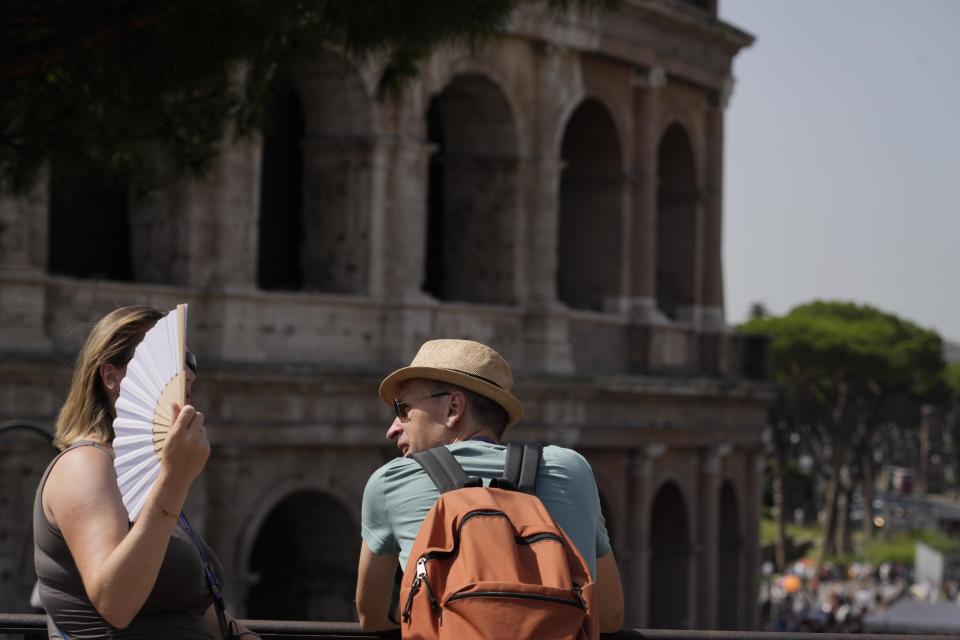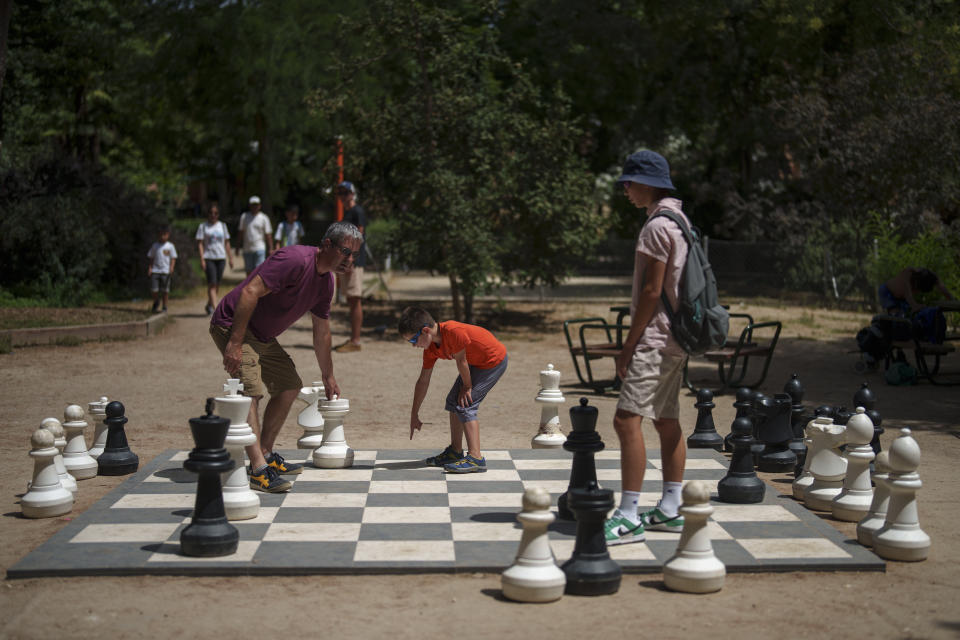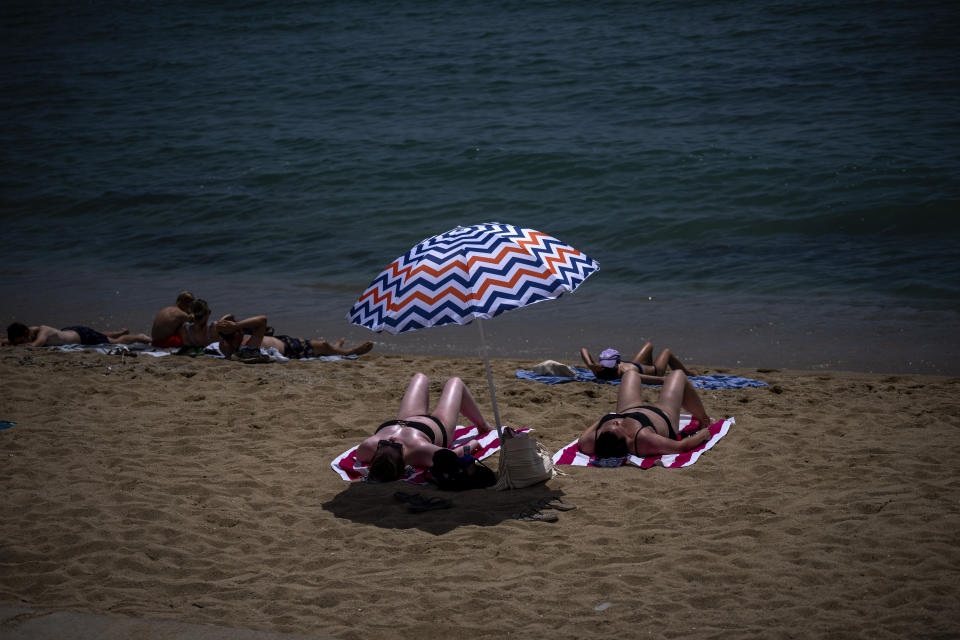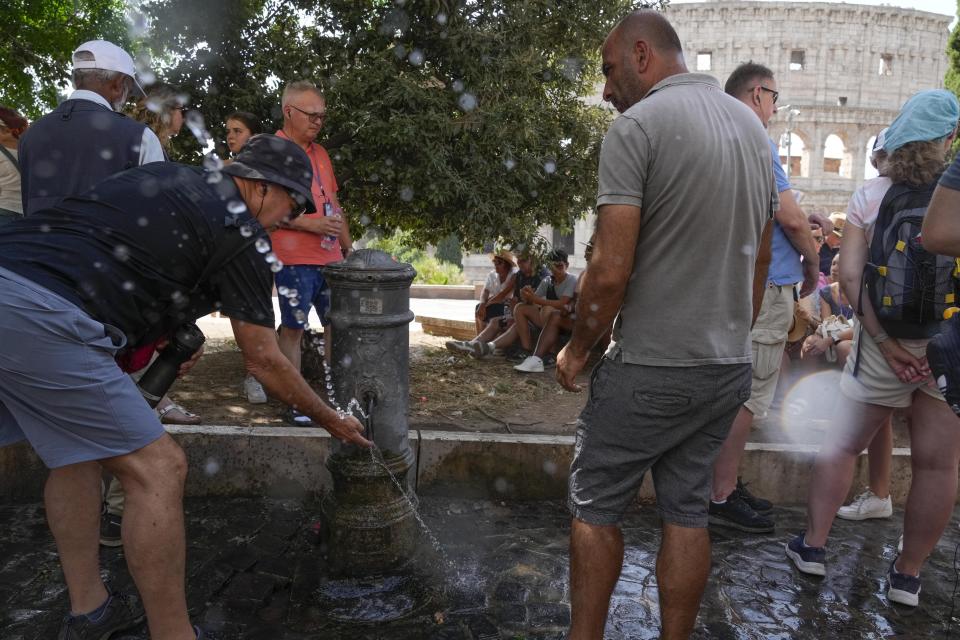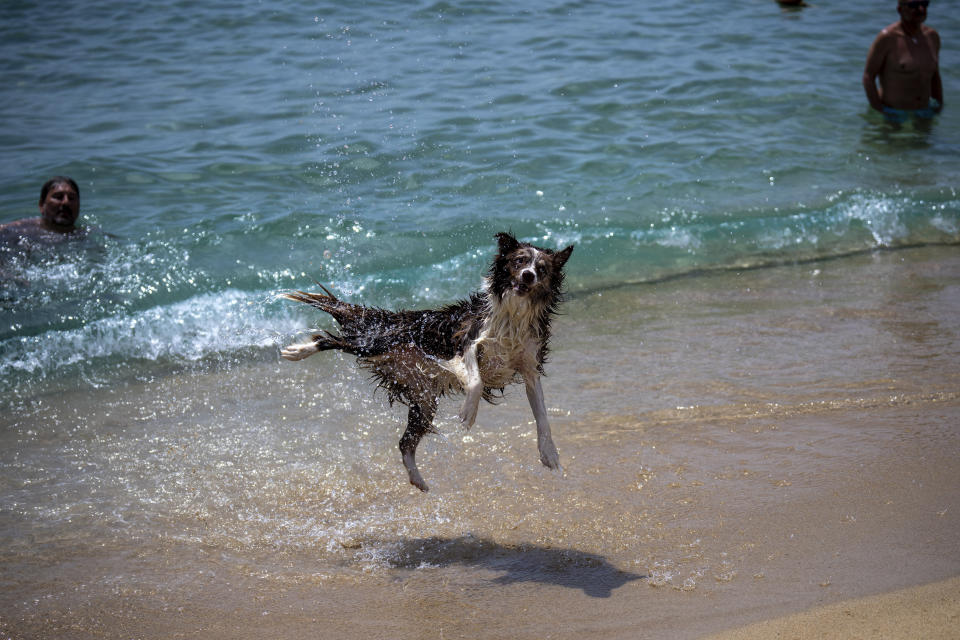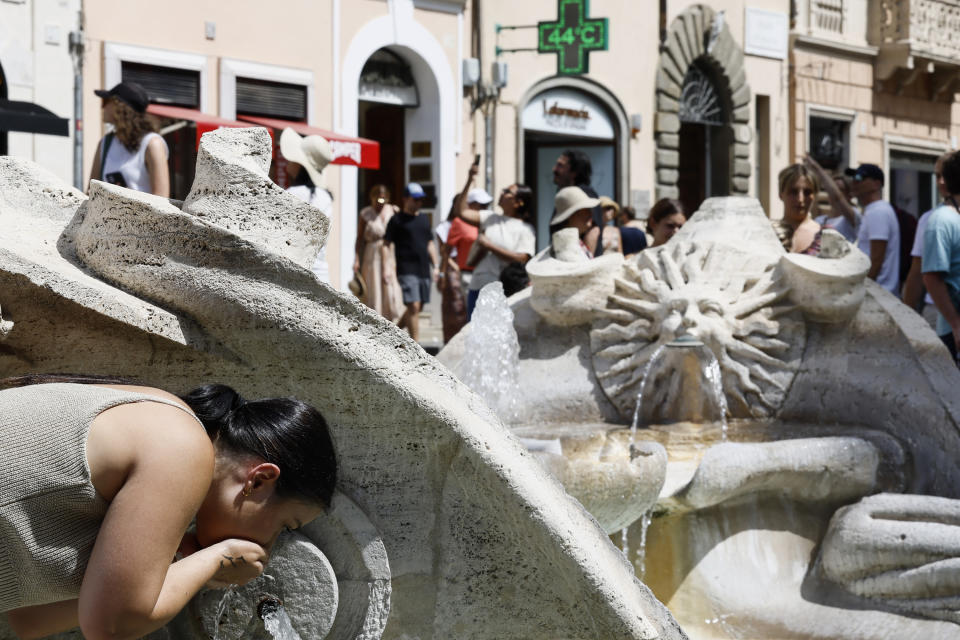A heat wave in southern Europe generates health warnings for residents and tourists
ROME (AP) — Italian health officials intensified heat warnings Monday as southern Europe began a brutally hot week with temperatures expected to top 40 degrees Celsius — or 104 degrees Fahrenheit — on a continent already sizzling under the sun and overburdened by tourists.
Countries with borders on the Mediterranean Sea weren't alone in suffering. Authorities in North Macedonia extended a heat alert for the next 10 days with predicted temperatures topping 43 C (109 F), while Kosovo also issued heat warnings.
“Never in my life have I experienced heat like this before in Pristina,” Artan Kelani, a 22-year-old student, said in Kosovo's capital, where it reached 34.4 C (94 F) Monday and was expected to get hotter starting Wednesday.
The Italian Ministry of Health urged regions to beef up house-call services so older people don’t have to go out if they need medical care and to set up dedicated heat stations at hospitals to treat emergency cases. Rome braced for temperatures as high as 42 C — 107 F — on Tuesday.
The Italian capital's civil protection office, volunteers and officials from the local water company plan to be at 28 locations, including the ancient Colosseum and open-air produce markets, to guide residents and tourists to fountains and to distribute bottled water.
The city government said that having volunteers fan out through the city would help hasten the arrival of medical help for people who seem to be suffering ill effects from the heat.
The culprit is a high-pressure anticyclone dubbed Cerberus after the multi-headed dog in Greek mythology that guards the gates to the underworld. Europe's third heat wave in a month was expected to affect much of the Mediterranean region and last until Wednesday.
“The bubble of hot air that has inflated over southern Europe has turned Italy and surrounding countries into a giant pizza oven,” Hannah Cloke, a climate scientist and physical geographer at the University of Reading, said in a statement. “The hot air which pushed in from Africa is now staying put, with settled high pressure conditions meaning that heat in warm sea, land and air continues to build.”
The mercury in Rome hit 39 C (102 F) by 3 p.m. on Monday afternoon. Power outages were hitting parts of the city as electric grids sputtered under heavy demand from air conditioners.
While the Italian capital's hot spell was tough on tourists trekking through the cobblestone streets, tourist industry workers sweated through it.
Prince Mack, who is from Liberia, kept hydrated as he hawked tickets to open-top tour buses near central Rome's Piazza Venezia. “I drank about six of these (water bottles) since this morning, and I'm still going to drink more,” he said at midday.
The Ministry of Health issued 10 recommendations to protect older adults, vulnerable people and and pets from the heat. The guidance included staying indoors and avoiding strenuous exercise during the hottest hours of the day and drinking at least 1.5 liters (nearly a half-gallon) of water daily.
Local celebrities went on state-run RAI television to read the recommendations aloud and get the message out.
Besides Rome, several other cities, in particular on the southern islands of Sicily and Sardinia, were expected to top 40 C (104 F) on Tuesday.
Animals were stressed, too. Italian farm lobby Coldiretti noted that cows are producing around 10% less milk due to the heat.
Spain’s Aemet weather agency said the heat wave this week “will affect a large part of the countries bordering the Mediterranean.” Temperatures in some southern areas of Spain were forecast to exceed 42 C (107 F) before dropping at some point on Wednesday.
Aemet spokesperson Rubén del Campo said that as Cerberus pushes a hot mass of air from Africa toward Europe, the heat and very dry air would cause the risk of wildfires to skyrocket.
A wildfire that started Saturday in Spain’s Canary Islands continued to burn out of control Monday, although authorities said weaker winds and cooler temperatures in the area were helping firefighters combat it. The blaze on the island of La Palma had burned some 4,600 hectares (11,300 acres) of mostly woody hill land and some 20 houses and buildings as of Monday.
More than 4,000 residents were evacuated from their homes Saturday but were allowed to return as of late Sunday.
Greece got a brief respite from the heat Monday, with opening hours returning to normal at the ancient Acropolis and other sites. But two wildfires threatened homes in areas outside Athens, where winds of up to 70 kph (45 mph) made the flames difficult to contain.
Most of southern Greece, including greater Athens, was at an elevated level of alert for fire risk, while more extreme temperatures were expected starting Thursday.
___
Associated Press reporters across Europe contributed to this report.
